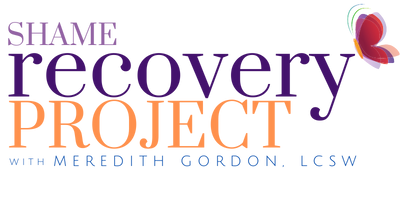Children are sponges. They pick up what is going on around them and internalize it in one way or another. These patterns can be carried into adolescence, young adulthood, and adulthood.
If a parent is narcissistic, for instance, the child has to do something with the parent’s untended anger and entitlement, their feelings of being less-than (covered up in myriad ways, then denied), and the parent’s rage at the child. This absorption is unhealthy and, yet, perfectly natural. Nature plays a part in development, but so does nurture (or lack thereof).
Children know in an intuitive, gut-level way, they need to protect themselves from a parent’s rage. But this information is not typically conscious. There may be fear or anxiety, but knowing the magnitude of the parent’s rage (hate, dislike, disdain, jealousy, distaste, etc) is too much to bear. There is a normal symbiosis that occurs in early childhood/infancy. But for the child of a narcissistic or parent with borderline traits, those intense feelings can feel to the child that they belong to them. They are also not conscious of it. (This has something to do with why the original anger and rage, that belong to the parent, actually feel like they belong to the child.)
Going into adulthood the parent’s feelings are like an overlay—a very heavy and opaque one. Really tough to see.
Because the feelings belong to the parent, the child cannot heal, fix, or change them. So stop carrying them.
The only thing that can help begin to undo the dynamic is when the child (at any age) begins to see this and develops healthy ways out from under it.
Feeling Through the Letting Go
Even though it’s good for you, it might be uncomfortable. Letting go evokes sadness and anger. It brings up regret and feelings that you may have used the “kick-the-can-down-the-road method” on…meaning, that you ignored that impulse inside you because it was scary. Perhaps because the narcissistic person was scary, too. You likely had a sense of what their reaction would be if you pulled away. (CLICK HERE to read my new post about how narcissists react poorly to rejection.) So your hesitation is quite understandable.
The mere notion of acknowledging one’s anger or letting the anger out might feel as though it threatens to
- destroy them
- destroy and annihilate everything around them
- destroy the parent from whom they desperately want attention and love
- reveal the extent to which they are supposedly damaged and out of control
That is a lot. For anyone. And why I often remind my readers that support from a licensed therapist who understands the dynamics of narcissism may help.
All this occurs below the level of consciousness, which is why it’s so elusive (and crazy-making). These intense feelings might appear to push you around from behind, like a masked robber holding a gun to your back.
A 3-Q Inventory
In the meantime, begin to assess what belongs to you and what doesn’t. Ask these questions of yourself whenever tension arises regarding your parent, regarding your caregiving duties, and any other time you need clarity.
- What part of this issue is really mine?
- How long have I been engaged in this issue—and why did I start?
- What do I expect to gain from this issue if I continue to carry it?
Keep a journal to reflect on your answers. They matter. And so do you.
Photo by Caroline Selfors on Unsplash
